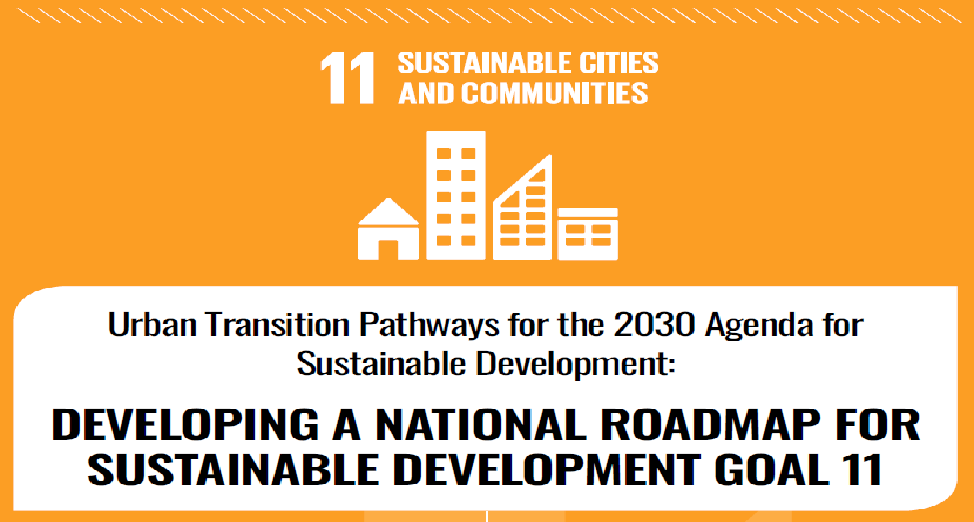
PUBLICATIONS


Sustainable Development Goal 11 (SDG11), which aims to make cities and human settlements inclusive, safe, resilient and sustainable, holds paramount importance in the context of the Asia-Pacific region. This region is witnessing an unprecedented wave of urbanization, with millions of people migrating to cities in search of better opportunities. However, urban growth often leads to challenges such as inadequate infrastructure, insufficient housing, traffic congestion, and environmental degradation.
Thus, it is imperative to have a national SDG11 roadmap to facilitate the alignment of national urban policies, urban planning strategies, and resource allocation for urban development with the SDGs, thereby fostering coordinated efforts towards targets of SDG 11 as well as various SDG goals and targets directly pertaining to cities. In this context, this guideline provides a comprehensive framework to address these issues systematically at the territorial level.
The inclusion of the 11th ‘urban’ goal in the 2030 Agenda for Sustainable Development was heralded by global urban experts, stakeholders, and sub-national government representatives as a significant step forward in acknowledging the global transition to a majority urban world. The 11th Goal contains 10 targets covering diverse topics – seven numeric ‘Outcome’ targets, and a further three ‘Means of Implementation’ targets – whose focus areas range from cultural heritage to housing affordability and slum upgrading to policy integration for generalized urban resilience. Currently, fifteen indicators are designated by the UN’s Interagency Expert Group on the SDGs for reporting on these SDG11 targets, with the initial SDG global indicator framework having undergone a comprehensive review in 2020.
The multifaceted nature of the ‘urban’ SDG reflects the complexity of the sustainability issues that urban areas face at the local scale.
CONTENTS
1. Background
2. Roadmap Approach and Resourcing
Step 1: Governance
Step 2: Context Setting
Step 3: Data Inventory and Policy Mapping
Step 4: Progress Analysis and Prioritisation
Step 5: Implementation: 'Shifting the Dial' and Partnerships
Step 6: Monitoring and Reviewing Progress to 2030
3. Further Assistance and Knowledge Sharing Opportunities
To donwload the FULL REPORT, please click the 'PDF downloads' link at the bottom of the page. Or click HERE to access it on the ESCAP website.









